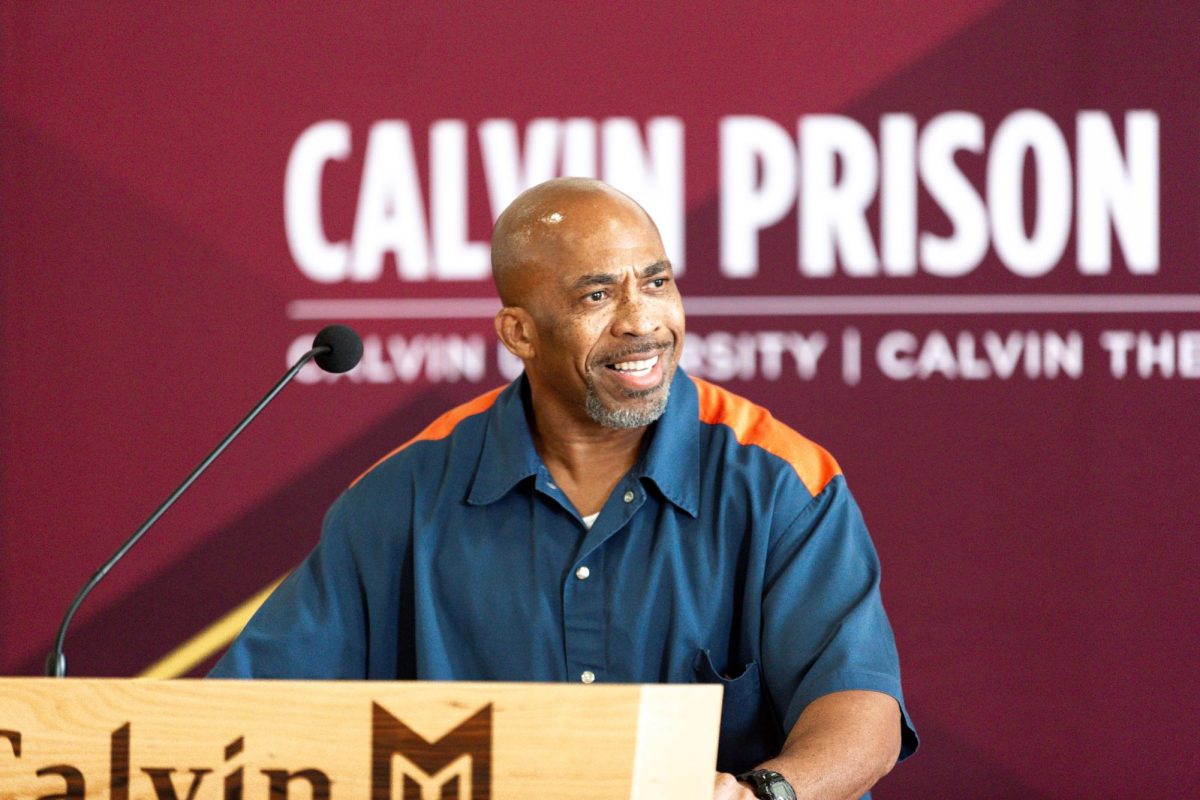Hello everyone,
It is me again, Kris (with a K). As most of you may know, I will be graduating on May 10, 2024. Of course, it has been a long time coming, and it is a bittersweet moment for those of us graduating here at the Handlon campus. Part of the bitter aspect is that this will be the last article I will write for Chimes, and I will miss sharing my thoughts with all of you. On the other hand, I have been graced with a loving and supportive community, earned a bachelor’s degree and gained a new lease on life. As I reflect on the thoughts, ideas and philosophies Calvin has introduced me to throughout this journey — especially now that graduation is less than one month away, making this extraordinary five-year milestone complete — I am reminded of the essay I wrote in Professor Cioffi’s restorative justice class entitled “A Review on the Beloved Community” (2024).
In that essay, I express that I find myself following Socrates’s perspective on the unexamined life by examining my own life, behavior and viewpoints. I can remember at the start of this journey towards earning my bachelor’s degree in Faith and Community Leadership and how I struggled to imagine or contemplate what my life would look like as a Christian in the world outside of prison — a world that is foreign to me. A world that I have not been a part of for more than two decades. A world that does not accept or forgive the rehabilitated man I am today, based upon the life-changing mistakes I made as a fragmented child twenty-six years ago.
The fact is, I do not blame others for my mistakes or circumstances, nor do I suggest that I am a victim of chance or happenstance. My life was a complete mess, and I was all right with it since I never had anyone to whom I admired enough to emulate. However, as cliché as it may sound, I wondered about the “whys” in my life. Why didn’t I have a normal childhood? Why did I have a child out of wedlock, get married to a woman I never loved, and open my home to someone that hurt my son? Why was I able to commit such a deplorable crime, and why didn’t I simply call the police? As an undeveloped Christian, the answers to the“whys” in life seemed easy to explain. The “whys” are God’s will, or at least that is what I learned in Sunday school. Yet, there are still times that I wonder: “why?”
After reading about Martin Luther King’s legendary kitchen table experience, I realized that I had my moment too: the moment when God revealed His glory, and I responded by offering my life to Him. In a way, I think we all wonder why from time to time. “Whys” are something like a common thread that weaves its way through our shared creation history — or maybe it is our humanity. Nevertheless, I think Martin Luther King wondered why as well. I think Martin Luther King wondered why every time he picked up the phone, his life was threatened. I think Martin Luther King wondered why when his home was bombed, and even more so, I think Martin Luther King wondered why as he blindly walked in his vocation (that is, before his kitchen table moment). Martin Luther King did not know of his imminent assassination in 1968 –– yet, before it happened, he was at peace with who he was and what his life had become. Like Martin Luther King, I hope to someday find peace with who I am and what my life has become.
Today, I am thankful for the ability to hope for peace in who I am as a man and what my life can become. This ability to hope in a future is made possible by God’s grace in the form of this five-year program. My capacity to hope for a future is made possible through the faith-based actions of the beloved Calvin community — those who have given their lives in service of God’s commandment “to love one another as I have loved you.” It is because of their steadfast commitment and sacrifices that I am able to wonder “what” instead of “why”: what will my new life be like; what will I do to serve my community and make the Lord proud of me; what changes will I make for the betterment of humanity; and what will my grandchildren say about the things God has done in my life.
I will close with my sincere, heartfelt gratitude and appreciation, saluting the entire Calvin community for not sitting around waiting for the second coming but instead going out to actively usher in the kingdom of God here and now, just as Jesus did over two thousand years ago. Thank you for taking up the nonviolent social morality vocation centered on the great event at the cross by striving to provide this broken community with redemptive social relations. I will never be able to repay the love, kindness and generosity you have freely given me, but know that I will forever work to pay it forward in the name of Jesus, by the power of the Holy Spirit, for the glory of God.
Thank you, beloved community.




